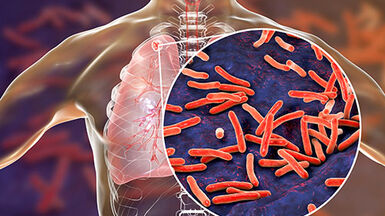Narodowy Instytut Zdrowia Publicznego - Państwowy Zakład Higieny (PZH) - EPIET
Contact person
Malgorzata Sadkowska-Todys
Tel. + 48 22 54 21 204
Fax + 48 22 54 21 327
Description of the institute
NIZP-PZH was established in 1918 and is the national public health institute appointed by the Polish Ministry of Health to act in different areas of preventive medicine. Its activities relate to epidemiology of communicable and chronic diseases, food safety, environmental health, and health promotion. NIZP-PZH supervises a national network of public health laboratories (sanitary-epidemiological stations). Four NIZP-PZH departments are involved in communicable disease surveillance: Department of Infectious Disease Epidemiology and Surveillance, Department of Bacteriology and Control of Biological Contamination, Department of Virology and Department of Parasitology and Vector Borne Diseases. All four departments cooperate strictly in terms of surveillance, research and training of local public health officers. The mission of the Department of Infectious Disease Epidemiology and Surveillance is to analyse surveillance data, supervise communicable diseases notification system, and to design and implement field studies, providing a link with international surveillance networks.
The Institute has WHO collaborating centres for polio, measles and influenza, and participates actively in the work of ECDC. It has a Public Health Training Centre (member of ASPHER) and a library with a wide spectrum of public health journals. Additionally, a national medical library adjacent to the Institute offers access to a wider range of scientific journals. Our scientists and highly skilled technical personnel work in a beautiful almost 100-year old building in the centre of Warsaw.
Training opportunities
The EPIET fellow, depending on his/her areas of interest, will participate in analysis of surveillance data, assessment of surveillance systems, vaccine efficacy studies, and/or development of serological surveys and other field studies.
The fellow will be invited to join the currently developed projects at the Department of Epidemiology:
- Surveillance and vaccination programme of pertussis – evaluation of system
- Influenza monitoring of vaccine effectiveness – establishment of hospital network
- COVID-19 analyses: surveillance data, program data (testing monitoring), seroprevalence studies, behavioural surveys
- Analysis of the impact of COVID-19 pandemic (and response measures) on incidence of other infectious diseases
- Evaluation of surveillance of selected sexually transmitted infections
- Analysis of trends in sexual and drug use related behaviours among clients of community based infectious disease testing sites.
- Analysis of trends in mortality of HIV infected population in the era of cART (this could also from the surveillance perspective – as deaths reported through surveillance could be compared to those ascertained through registry linkage with census data).
The fellow will also participate in field investigations in local health departments. There will be opportunities to participate in workshops and training courses carried out in NIZP-PZH and to present own results on local and international conferences. The fellow is expected to write scientific reports and articles. Other opportunities will be to learn practical skills in microbiological diagnostic methods in NIZP-PZH reference laboratories, or to analyse surveillance data with the assistance of times-series experts from the Centre for Monitoring and Analyses of Population Health Status and Health Care System.
Training supervision
The EPIET fellow will be based in the Department of Infectious Disease Epidemiology and Surveillance, but she/he will be invited to projects in other departments, as needed. She/he will have access to optimal office space with computer equipment, and access to both Intranet and Internet. The fellow will be fully integrated in the team and will have access to all information and databases of the Department.
The following resource people, working in the Department of Infectious Disease Epidemiology, will serve as supervisors for EPIET training:
- Iwona Paradowska-Stankiewicz - MD, PhD with expertise in epidemiology of vaccine-preventable diseases
- Magdalena Rosinska, MD, PhD, MS in Biostatistics, MS in Mathematics, with expertise in epidemiology of blood borne infections including HIV/AIDS, teaching epidemiology and biostatistics.
- Malgorzata Sadkowska-Todys, PhD, with expertise in epidemiology of food-borne infections, outbreak investigations, molecular biology.
Language requirements
Most researchers do speak English, but administrative and technical staff usually do not. Knowledge of Polish will be of great value during fieldwork.
Training history
Number of EPIET Fellows trained at institute: six (2008, 2010, 2011, 2012, 2013, 2017).
Number of EPIET Alumni working at the institute: one (EU-track).




